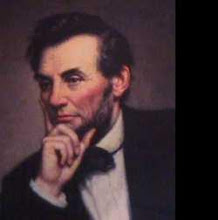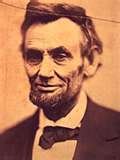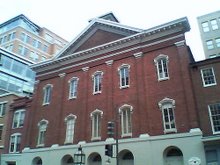
The Lincoln Traveling Exhibit has reached my local library! Launched in 2009 to coincide with Lincoln’s 200th birthday celebration, the exhibit continues to travel through 2010, bringing a chilling story to the eyes of anyone willing to take the time to look.
"Forever Free: Abraham Lincoln’s Journey to Emancipation" chronicles Lincoln’s life and career through an illustrated timeline on a series of sturdy, free-standing panels.
In just a short walk, you can see how closely Lincoln’s life paralleled the life of slavery in America. In fact, from his first political speech to his last conscious thought at Ford’s Theater, Lincoln’s life can be told almost solely through the landmark decisions leading up to the abolition of slavery.
But the journey is much more than that. It is about Lincoln’s own growth from someone who was willing to tolerate slavery to keep the Union together, to someone who deeply understood that no Union could survive while any of its citizens were not free. This realization was ultimately Lincoln’s own emancipation. But reaching that conclusion, which seems so obvious to us today, was a hard personal and national struggle.
The most vital quote for me was Lincoln’s response to those who claimed that slavery had some good in it, especially for the slave. Lincoln reminded his listeners that we are creatures who know how to choose good things for ourselves, yet no man has ever voluntarily put himself under the yoke of slavery. His bleak reminder still speaks from the wall of a silent panel in the 21st Century: "No man ever chooses to be a slave."
How wonderful it is to have access to this exhibit now, just as Lincoln’s birthday approaches in 2010. It is a fine reminder not to take for granted what others fought so hard to define – the value of freedom.












1 comment:
Tee hee.
I'd be your slave in a heartbeat.
Post a Comment